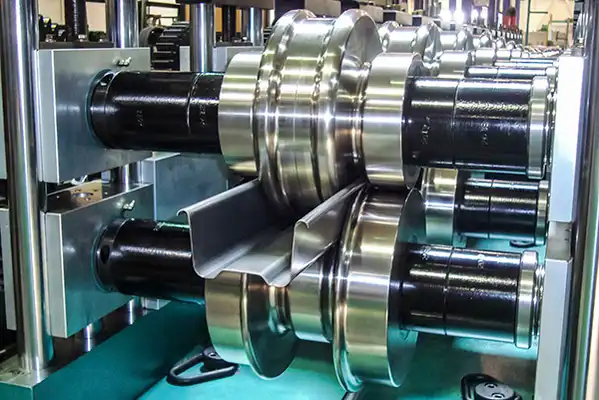Navigation Menu
Contact Us
- Email:
- info@wxavatar.com
- Address:
- Yurong Village, Yuqi Street, Huishan District, Wuxi, China.
Release Date:Jun 22, 2025 Visit:68 Source:Roll Forming Machine Factory
The automotive industry is constantly evolving, demanding ever-more precise, efficient, and cost-effective manufacturing processes. In this dynamic landscape, roll forming technology is undergoing significant advancements, playing a crucial role in shaping the future of auto parts production. These innovations are not only enhancing the capabilities of roll formers but also opening new avenues for design and material utilization.

One of the most impactful innovations is the widespread adoption of advanced automation and control systems. Modern roll formers are integrated with sophisticated sensors, programmable logic controllers (PLCs), and human-machine interfaces (HMIs), allowing for real-time monitoring, precise adjustments, and reduced manual intervention. This leads to higher accuracy, greater consistency in part dimensions, and significantly less material waste. The ability to quickly change parameters and recipes also facilitates rapid shifts between different part specifications, a critical advantage in an industry characterized by diverse product lines.
Another key area of development is the integration of high-strength and specialized materials. As automakers increasingly focus on vehicle performance and structural integrity, the demand for parts made from advanced steels, aluminum alloys, and even composites has grown. Roll former manufacturers are responding by developing machines capable of processing these materials without compromising their integrity or the forming process. This involves innovations in tooling design, lubrication systems, and the overall rigidity of the machinery to handle the increased stresses involved.
Furthermore, in-line processing capabilities are transforming the efficiency of roll forming lines. Beyond simply forming the profile, contemporary roll formers can incorporate various secondary operations directly within the line. This includes in-line punching, notching, welding, and even cutting to length. This consolidation of processes minimizes material handling, reduces work-in-progress, and ultimately streamlines the entire production workflow, leading to substantial time and cost savings.
The advent of predictive maintenance and data analytics is also making a significant impact. Roll formers are now equipped to collect vast amounts of operational data, which can be analyzed to anticipate potential equipment failures, optimize maintenance schedules, and identify areas for process improvement. This proactive approach to maintenance minimizes downtime and maximizes the operational lifespan of the machinery, ensuring consistent production output.
Finally, the focus on modular and reconfigurable designs is providing manufacturers with greater flexibility. Modern roll formers are often built with a modular architecture, allowing for easy expansion, modification, or even complete reconfiguration to adapt to changing production needs. This adaptability is crucial in the fast-paced automotive sector where part designs and production volumes can shift frequently.
These innovations collectively highlight a future where roll forming will continue to be an indispensable technology in auto parts manufacturing. As these advancements progress, we can anticipate even more precise, versatile, and integrated solutions that will further enhance efficiency and unlock new possibilities for automotive design and production.